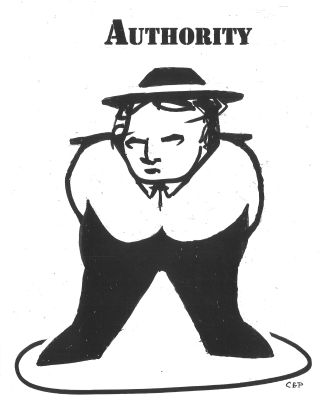Parenting
Thankless Parenting: Managing Authority With Your Adolescent
Maintaining responsible influence in an age of growing youthful resistance.
Posted January 16, 2023 Reviewed by Jessica Schrader
Key points
- More youthful complaints about parental requests, rules, and restraints signify an adolescent's growing desire for increased independence.
- While the child believed parents had the power to command, the adolescent knows she or he has the power of consent.
- Parental authority serves many functions: to judge, to allow, to order, to discipline, to know best, to demonstrate, to convince, and to rule.

In spirit, two common adolescent objections to parental authority might sometimes sound like this:
"Why can't I!"
"Why do I have to?"
Authority is demanding
And so, with the onset of their child’s adolescence, parents can experience more complaints about their ruling authority.
The forms vary: sometimes actively with objection and argument, sometimes passively with evasion and delay, and occasionally aggressively with disobedience and defiance. Parents are in the thankless position of regulating teenage choice when she or he is increasingly drawn to asserting personal freedom.
Contention over what youthful freedoms to allow, demands to make, and restrictions to impose (“What you can do, what you must do, what you can’t do”) can be increasingly stressful for the parent/adolescent relationship.
However, this abrasion is functional because it gradually wears down youthful reliance on parents, who gradually relinquish oversight responsibility. Thus, adolescence progressively grows them and their teenager socially apart until youthful independence is finally claimed at the end: “Now I’m in charge of running my life!”
Command to consent
While the child was more accepting of traditional parental authority, believing parents had the power to command (“I have to do what I’m told”), with growing independence the adolescent assumes more power of consent (“They can’t make me or stop me without my cooperation”).
So with the onset of adolescence, parental authority begins to erode as the adolescent:
- Can increasingly brave more disagreement.
- Can become less immediately compliant.
- Can credit parents with knowing less.
- Can become harder to convince.
Authority is power
Parental authority fulfills many influential functions. Consider a few:
- The power to judge (to evaluate conduct): This is approval authority. “Good job!”
- The power to guard (to keep safe) This is protective authority. "So you don't get hurt."
- The power to allow (to grant freedom): This is permissive authority.. “We’ll let you.”
- The power to order (to organize): This is controlling authority. “Keep track this way.”
- The power to correct (to penalize): This is disciplinary authority. “This is the consequence."
- The power to know best (to better understand): This is expert authority. “We learned from experience.”
- The power to model (to example): This is demonstrative authority. “Try doing it like us.”
- The power to convince (to sway): This is persuasive authority. "Let us explain.”
- The power to rule (to have the final say): This is vested authority. “Because we say so.”
As the child grows through adolescence, she or he may sometimes bridle against parental authority, making common complaints along the way: “You always criticize!” “You never let me!” “That’s not fair!” “You’ve got no right!” “You can’t make me!” “You can’t stop me!” “Not now!” “I’ll do it later!” “Leave me alone!” “Stop bugging me!” “Just tell me why!” “That’s no reason!”
At times, being answerable to parental authority, and being in adult authority, can feel frustrating; but as parental terms become harder to live on, youthful determination to live on one’s own terms gradually grows.
Explaining authority
When it comes to their authority, parents can explain how it works:
“Our authority is not about our wanting power; it’s about us accepting responsibility. As long as you remain dependent on our support and direction, we remain partly accountable for your choices. This is why abiding by our authority still matters.
We know you will not always like our decisions, so when you disagree with our requests, rules, or restraints, we will try to be an approachable authority. This means we stand ready to hear your questions and objections, and to give our reasons for taking the stands and making the demands that we do.
It’s when you leave our care to begin operating on your own independent terms that our oversight and regulation, our active authority, finally comes to an end.
Until then, we really appreciate your compliance. We know that going along with what we want is not always agreeable, but in cooperating you are doing your part to help us get along. So, thanks a lot."


